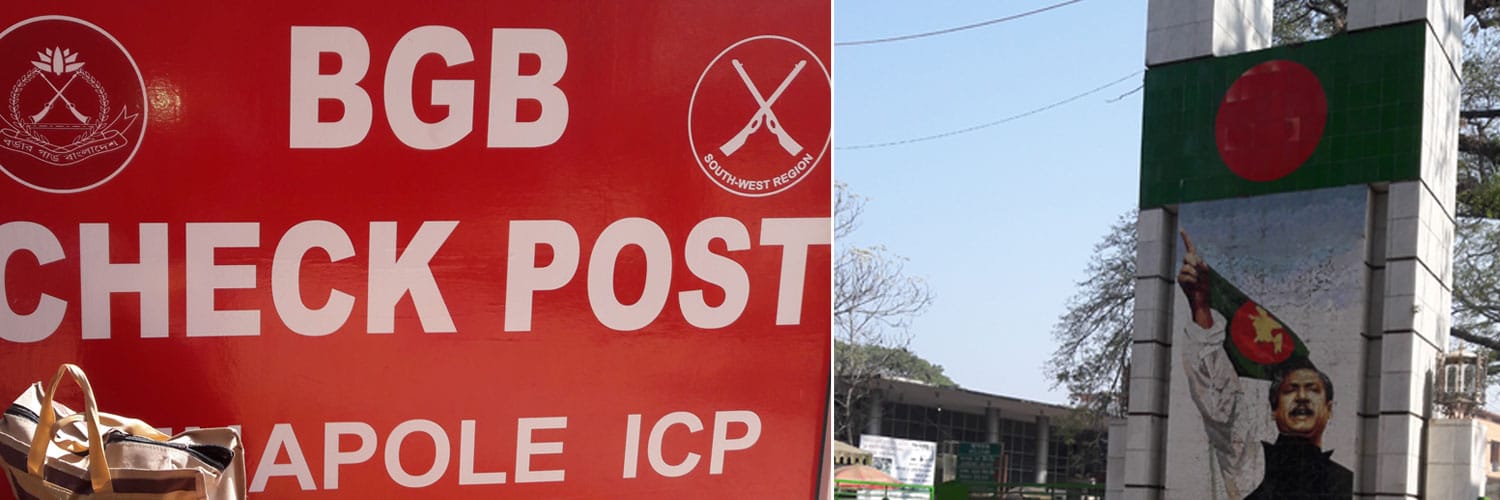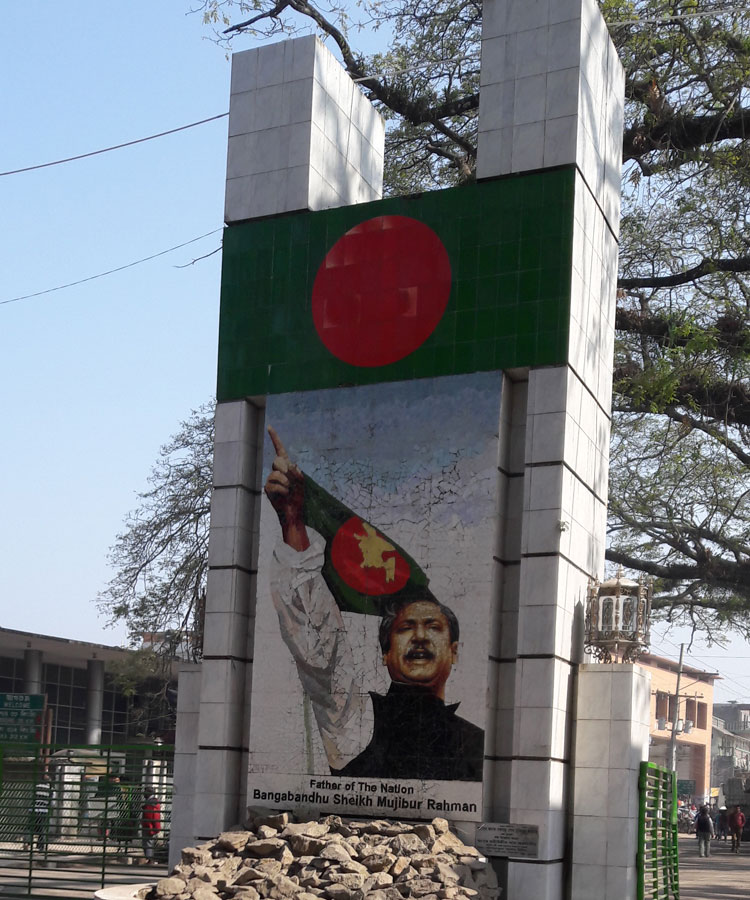On a lazy afternoon amidst lockdown, boredom invading my mind, I was browsing all the drives of my personal computer. Suddenly I found this article written six years ago. When print and social media are full of news on coronavirus and deaths, an uncertain future haunts us, I thought of editing the article. Perhaps reading this article will divert the reader’s clogged mind temporarily and add positivity in their present state of mind.
Being born in the last quarter of the twentieth century my childhood days were simple than that of the present generation. There were no computers, videogames, shopping malls or cartoons to watch. I spent my childhood in the lap of Mother Nature hearing stories, folktales from my grandparents about ‘their’ land. To be very true, as a kid I did not understand what ‘their’ land meant. ‘Their’ land was very fertile and full of flora and fauna. At dawn, the first rays of sun brightened the paddy fields to make it appear as a gold necklace. At dusk, as the sun fades into oblivion a reddish–pinkish shade covers the blue sky popularly referred to in Bengal as ‘rakto-sandhya’. And then one day they left ‘their’ land and settled here.
They would often discuss partition, riots, refugees, and tears would roll down from their eyes. They had a long-cherished desire to visit ‘their’ land before their departure from this world. To me, the rigmarole appeared very boring at times. As I grew up and read Indian history I understood that partition lead to the birth of India, West Pakistan (now Pakistan) and East Pakistan. In 1971, East Pakistan became Bangladesh.
In 2014, I got an opportunity to visit the Indo-Bangladesh border to speak to women officers of Border Security Force, a central para-military force under the Ministry of Home Affairs, Government of India.
Accompanied by a head constable Mr. Mondol, I left for the border from the office of the Additional Director General, Eastern Command, Kolkata at 9 am. Around 12 noon, after three hours of journey by road, I reached the Border Out Post (henceforth BOP) at Haridaspur. But the journey was neither tiring nor boring as Mr. Mondol told me stories of the Indo-Pakistan border in the states of Jammu and Kashmir, Punjab, Rajasthan, and Gujarat. He told me how gruesome it is to guard the borders along the mountainous terrain when the temperature ‘dips’ down to minus fifteen-degree centigrade, and at times more. How Mother Nature gets wrapped in white snow, but as a BSF jawan their eyes are not to view the ‘beauty’ of Mother Nature but to guard Mother Nature- our Motherland. How late at night they would hear the sound of gunshots and within a second they had to take their proper position ‘to fire’. The jawans take shelters in bunkers when grenades are thrown on the Indian side by our hostile neighbor.
Their life can end at any moment- each and every second of their life they ‘confront’ death, but they remain firm in their motto to guard and defend India – our Motherland. Mr. Mondol spoke of his experiences in Special Protection Group (henceforth SPG), when he was deployed to protect Prime Minister’s residence. He and others deployed in SPG would play badminton with Rahul Gandhi. He had full sympathy for Rahul and Priyanka Gandhi, who because of security concerns had a caged childhood even though the cage was made of gold.
After reaching BOP Haridaspur, a senior officer welcomed me. As I entered the camp I saw the main building. In between the main building and the male jawan barracks, there was a huge playground where jawans played football and volleyball. My accommodation was made at the A.C. conference hall building. While having lunch with the Commandant and other senior officers I learned in B.S.F. in this region officers wear a batch of tigers (symbolizing the royal Bengal tiger of Bengal), whereas in Rajasthan the symbol is that of a camel. It varies from state to state.
After having a quick lunch with a senior officer, I started interviewing the women personnel in B.S.F. in the conference room. These women personnel were freshly recruited. They were young and energetic. In the name tag, their blood group has been mentioned, in case of emergency. Few of them received training at Kharkhan camp of B.S.F in Punjab and others received training in Siliguri. Initially, coming from a civilian background they found it difficult to adjust but with the passage of time, they adapted themselves in the training camp.
Apart from indoor training where they learn laws, outdoor training is challenging since they have to do the drill, P.T., rope climbing, etc. They have learned to use pistols, sniper rifles, machine guns, handguns. Even though the training was ‘hard’, physically strenuous, but at the end of the day, such training has made them firm, confident, and fearless. Some of them came from remote, conservative areas of Madhya Pradesh, Orissa, West Bengal. I was overwhelmed to hear their parents have been supportive and have encouraged them to join the central police force, which even now is a male enclave.
Women officers were proud of their uniform which gives them ‘power’, ‘authority’ and made them ‘different’ from any civilian. They are being used for non-combat roles. One of them spoke of her experience of frisking woman at India-Bangladesh border and recovering gold biscuits from a woman’s knee-cap. They have been involved in the recovery of fake currency, narcotics, smuggled goods, and have halted illegal immigrants to enter India. In this region smuggling of goods, cows, narcotics, and trafficking of women are rampant. Terrorists use this as a transit route to enter neighboring countries or flee away.
A few of these women personnel are married with kids. A few of them have left their kids with parents and in-laws in towns, villages and stay in barracks where they share rooms with other women personnel. Some of them live in family quarters. In the evening around 4.45 p.m., I left with a senior officer to visit the Petrapole – Beniapole Indo- Bangladesh border. I saw a group of jawan getting ready for the ceremonial occasion. Sonu Nigam’s song ‘sandeshe aate hain…’ from the film ‘Border’ was being played in the background. The song mesmerized the environment and helped to evoke a nationalist spirit. On the right-hand side, at a distance, two hoardings – Union Republic of India and People’s Republic of Bangladesh were separated from each other by a railway line.
I saw a BSG guard manning the Bangladesh side of the border. Exactly at 5 p.m. the joint retreat started. The parade here is not as ‘aggressive’ as compared to the Indo-Pakistan border at Wagah. On both sides of the border, people watched the parade. After the parade, the gates of both sides were closed. The gate remains close from 5 p.m. to .5a.m., no human beings or goods can legally enter both countries during this time period. A new immigration check post is being constructed on the Indian side of the border. On the other side, the frontier wall has pictures of Bango Bondhu Mujibur Rehman. After the ceremonial parade was over I saw the white line that demarcates the border in no man’s land. I was standing on the no man’s land viewing the land where my ancestors belonged. For a few seconds, a strange emotional bond tied me with the land from where I trace my family lineage. I felt like capturing the time and land in my hands forever, knowing fairly well I have to leave this place within a few minutes.
For the first time, I realized what my grandparents meant and felt when they would speak of ‘partition’. I realized what emotional trauma my grandparents and their generation suffered when they were compelled to ‘leave their land’ forever and reside in the then ‘alien land’ where they were referred to as ‘refugee’. To leave ‘home’, ‘friends’, ‘job’, the ‘land’, and ‘identity’, to re-establish their identity and niche in a new land requires a lot of patience, mental strength, and hard work. How dirty politics of colonial-era fragmented such a beautiful evergreen landmass.
The Bangladeshis standing on the other side appeared so familiar to us-their language, dress, culture, yet we are different countries with different post-colonial identity. It was really wonderful to reconnect with my past for a few minutes and then to move forward towards my next destination BOP Jayantipur under 40 BN. As I traveled the assistant commandant briefed me with the rank structure of BSF. The place is so beautiful. On the right side, the border is zig zag but the fencing has been completed. However, in certain areas fencing has not been completed due to land disputes. Leaving 150 meters from the fencing (of the Indian side) the border of Bangladesh starts. In this BOP a separate barrack for women exists. At dusk, I returned to the Haridaspur camp.
Next day after having breakfast, accompanied by a jawan, I left for 152BN in a BSF gypsy. As I traveled I saw the makeshift posts made of bamboo where an armed BSF jawan stands alone confronts natural calamities, enemies, terrorists, venomous snakes, and at times other wild creatures. Two women are posted in one post. I passed through BOP Gunarmath, Angrail, Bornberia, Jhowdanga, Angrobullet and saw the concrete posts where the jawans stand at night with Hand Held Thermal Imager. I was told with this instrument clear night vigilance for around 1 to 1.5 kilometers can be maintained. The jawan pointed out the numbers such as 17/167 R are inscribed upon small walls. It seems the jora sankha (even numbers) post belongs to Bangladesh, whereas the odd numbers belong to India. (fact unverified). While we were traveling, the jawans narrated their ‘hard’ life when they get posted in Kashmir and Manipur. At times the platoon has to remain in the field at Jammu and Kashmir border at a stretch for 72 hours with very limited food and water. I just felt that we, the city dwellers, enjoy all the comforts of the city yet we yearn for more and more. But these jawans had left their homes, families far behind, bravely confronting harsh natural conditions, at times bullets for ‘us’. I asked one of the jawans after such hard duty do you get time to sleep? He replied, “Madamji, ham nehi sote isley to aap log so sakte hain” (Madam, since we don’t sleep, you -civilians can sleep).
Finally, I reached BOP Kalanchi where I met twenty-one women constables who shared their thrilling professional experiences. The officer posted here showed me river Ichamati and the riverine border along with the land. Inside the BOP Kalanchi, the jawans have made a kitchen garden, poultry farm, and a small pond that exists where I saw different types of fish. My eyes tried to capture the greenery all around. I had lunch inside the tent with freshly caught ‘hilsa’ from the Ichamati River.
It has been a wonderful learning experience for a civilian like me. I met new people and made new friends. I enjoyed each and every moment on the lap of nature with a canopy of blue sky above. For a city dweller like me, it has been a welcome retreat from the usual hustle-bustle of the city. With lots of memories and beautiful sylvan landscapes captured forever in my heart, I returned from the Indo-Bangladesh border to Kolkata by train.



